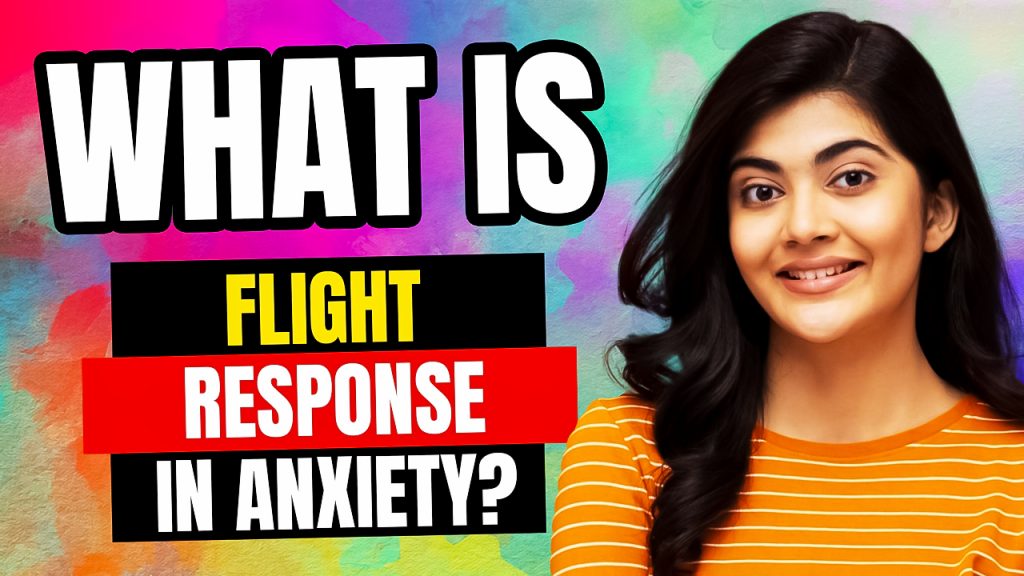
Anxiety is a natural response to stressful or threatening situations, and it is something that everyone experiences at one time or another. However, for some people, anxiety can become a chronic condition that significantly impacts their daily life. One common symptom of anxiety is the flight response, which is a natural response to perceived danger. This essay will explore what the flight response is, how it relates to anxiety, and what can be done to manage it.
The flight response, also known as the fight or flight response, is a physiological reaction that occurs when the body perceives a threat or danger. This response is the body’s natural way of preparing itself to either fight or flee from the perceived danger. The flight response is a survival mechanism that has evolved over millions of years and is an essential component of the body’s stress response system.
During the flight response, the body releases a surge of hormones, including adrenaline and cortisol, which increase heart rate, blood pressure, and respiration rate. These changes are designed to give the body a burst of energy to either fight or flee from the perceived danger. The flight response can be triggered by a variety of situations, including physical danger, emotional stress, and even public speaking.
When the flight response is triggered in response to anxiety, it can be overwhelming and uncomfortable. People who experience the flight response may feel a range of physical sensations, including rapid heart rate, shortness of breath, trembling, and sweating. These sensations can be distressing and lead to further anxiety, creating a cycle of fear and physical symptoms.
The flight response is closely related to anxiety because it is often triggered by situations that are perceived as threatening or dangerous. People with anxiety may experience the flight response more frequently and intensely than those without anxiety. For example, someone with social anxiety may experience the flight response when faced with the prospect of public speaking or meeting new people. Someone with generalized anxiety disorder may experience the flight response in response to a variety of everyday situations, such as driving or going to the grocery store.
The flight response can be helpful in certain situations, such as when there is a real physical threat. However, when the response is triggered in response to anxiety, it can be debilitating and interfere with daily life. Fortunately, there are several strategies that can be used to manage the flight response and reduce anxiety.
One effective strategy for managing the flight response is deep breathing. Deep breathing exercises can help to slow down the heart rate and reduce feelings of anxiety. To practice deep breathing, find a quiet place to sit or lie down and take slow, deep breaths in through the nose and out through the mouth. Focus on breathing deeply into the belly and exhaling slowly. Repeat this exercise for several minutes until you feel calmer.
Another effective strategy for managing the flight response is physical exercise. Exercise can help to release excess energy and reduce feelings of anxiety. Even a short walk around the block or a few minutes of stretching can be beneficial. Aim for at least 30 minutes of physical activity each day to help manage anxiety and reduce the flight response.
In addition to deep breathing and physical exercise, there are several other strategies that can be used to manage the flight response and reduce anxiety. These include mindfulness meditation, progressive muscle relaxation, and cognitive-behavioral therapy. These techniques can help to retrain the brain to respond differently to perceived threats and reduce the intensity of the flight response.
In conclusion, the flight response is a natural physiological response to perceived danger. When triggered in response to anxiety, it can be overwhelming and interfere with daily life. However, with the right strategies and techniques, the flight response can be managed effectively, allowing individuals with anxiety to lead full and productive lives. If you are experiencing anxiety and the flight response, it is important to seek professional help from a mental health professional who can provide personalized treatment and support. With the right tools and resources, anxiety and the flight response can be successfully managed, and individuals can regain control over their lives.
It is also important to note that the flight response is not always the appropriate response to a perceived threat. In some situations, the flight response may actually be harmful or counterproductive. For example, in situations where a person is experiencing social anxiety, the flight response may lead them to avoid social situations altogether, which can lead to further isolation and anxiety. In these situations, cognitive-behavioral therapy can be helpful in teaching individuals to reframe their thoughts and develop more adaptive coping strategies.
Overall, the flight response is a natural and necessary response to perceived danger, but when it is triggered in response to anxiety, it can be overwhelming and interfere with daily life. However, with the right strategies and techniques, the flight response can be
managed effectively, allowing individuals to regain control over their lives and reduce feelings of anxiety. Seeking professional help from a mental health professional is essential in developing an effective treatment plan and finding the right tools and resources to manage anxiety and the flight response. With time and effort, individuals can learn to manage their anxiety and live full and productive lives.
This Post is Brought To You By BetterHelp